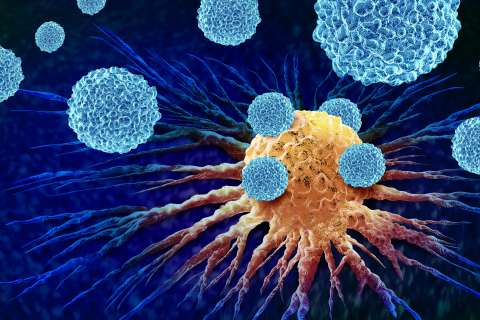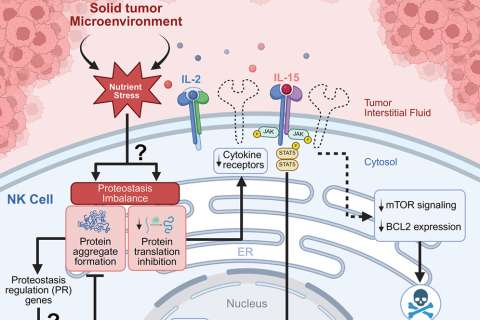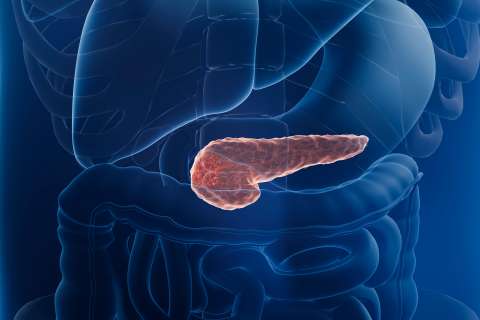New UCLA-led research shows that behavioral interventions — mindfulness meditation and survivorship education classes — are effective in reducing depressive symptoms in younger breast cancer survivors, who often experience the highest levels of depression, stress and fatigue that can persist for as long as a decade after their diagnosis.
The results, presented at the San Antonio Breast Cancer Symposium (ABSTRACT GS2-10), highlights how six-week interventions can reduce depression in younger women treated for breast cancer, and in the case of mindfulness meditation, improve related symptoms such as fatigue and sleep disturbance.
About 20% of breast cancer cases occur in women younger than 50. Persistent depressive symptoms, lasting two weeks or more, are especially problematic in this target population.
"For women in their 30s and 40s, the experience with breast cancer and its treatments is substantially different from that of older women," said lead author Dr. Patricia Ganz, associate director for population science research at the UCLA Jonsson Comprehensive Cancer Center and distinguished professor of medicine at the David Geffen School of Medicine at UCLA as well as health policy & management at the UCLA Fielding School of Public Health. "These women often require more aggressive therapy that can be both disruptive and disfiguring, which can cause high levels of distress, putting them at an increased risk for the negative effects of cancer diagnosis and treatment. Yet, little research has been done on strategies to reduce the depression and manage the stress of this younger population."
Ganz, in collaboration with Dr. Julienne Bower, a professor of psychology and psychiatry/biobehavioral sciences at UCLA, and colleagues at the Dana Farber Cancer Institute and the Sidney Kimmel Comprehensive Cancer Center at Johns Hopkins, developed two behavioral interventions to help reduce depressive symptoms in younger breast cancer survivors.
Both programs were tailored to younger breast cancer survivors and included six weeks of structured content delivered in a group format.
The mindfulness program, developed by the Mindful Awareness Research Center at UCLA, provided instruction in how to use mindfulness to work with difficult thoughts and emotions, manage pain, and cultivate loving kindness. The survivorship education program covered topics including quality of life and medical management after breast cancer; relationships and work-life balance, sexual health, and physical activity.
To test the effectiveness of the two intervention programs, the team enrolled 247 women diagnosed at age 50 or younger with early-stage breast cancer who had completed treatment between six months and five years earlier and had at least mild depressive symptoms.
The breast cancer survivors were randomly assigned to one of three options: survivorship education, mindfulness meditation, or a concurrent wait list control group who received the program of their choice at the end of the study. Assessments were conducted before the interventions started, post-intervention and at three- and six-month post-intervention follow-ups. The outcomes for women in the two intervention programs were compared to women who did not receive an intervention during the study period.
The team found that women in the mindfulness meditation group had significant reductions in depressive symptoms at post-intervention and at the three- and six-month follow-ups; over 50% of participants scored in the clinically depressed range before the intervention, which fell to 30% over the follow-up period. This group also had significant decreases in fatigue severity, sleep disturbance and hot flashes that persisted over the six-month follow-up.
For those in the survivorship education group, women also had significant reductions depressive symptoms at post-intervention and the three-month follow-up. However, this intervention did not lead to significant effects on secondary outcomes such as fatigue, sleep disturbance and hot flashes.
"Younger breast cancer survivors are in need of targeted, effective programs to help manage stress, depression, and other residual side effects of diagnosis and treatment," said Bower, who is also a member of the Jonsson Cancer Center and the Cousins Center for Psychoneuroimmunology. "We are excited to have two new options to offer these survivors, and particularly the mindfulness program which is available online and can be accessed by women across the country."
The study's other authors are Dr. Michael Irwin, Ms. Laura Petersen and Dr. Catherine Crespi of UCLA; Dr. Ann Partridge and Dr. Hadine Joffe of Dana-Farber Cancer Institute; and Dr. Antonio Wolff and Ms. Elissa Thorner of John Hopkins University School of Medicine and Sidney Kimmel Cancer Center.
This work was supported by the National Cancer Institute and the National Institutes of Health National Center for Advancing Translational Science, as well as the Breast Cancer Research Foundation.





